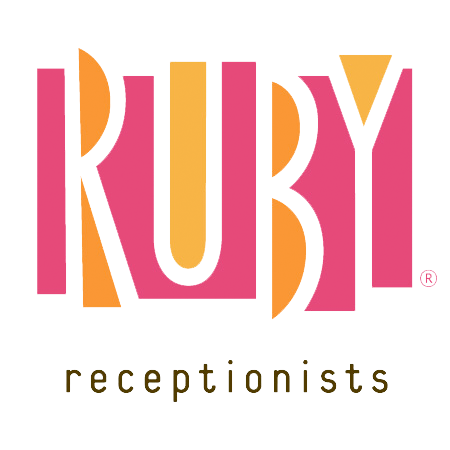Tom's Favorite Things : @amazonmturk + @FancyHands + @callruby + @WeWork
We do live in one of the most exciting times for entrepreneurship. Gone is the stigma that working for yourself means you couldn’t get a job. Starting your own company is now a badge of honor.
Along with the shift in societal acceptance, there’s also a major shift in the tools available to a budding entrepreneur.
In the last ten years, a huge number of services and platforms that were once only for large companies started to shift into the realm of startups.
Here are a few of my favorite tools for start-ups (and anyone for that matter!) to use:
MTurk is a crowdsourcing marketplace enabling individuals and businesses to coordinate the use of human intelligence to perform tasks that computers are currently unable to do. Even better, it’s owned by Amazon!
Requesters can post jobs known as Human Intelligence Tasks (HITs), such as choosing the best among several photographs of a storefront, writing product descriptions, or identifying performers on music CDs. Workers can then browse among existing jobs and complete them in exchange for a monetary payment set by the requester.
I’ve used MTurk dozens of times over the years. The best way to think about its usefulness is that it’s an on-demand virtual army. You can give it very specific, direct and repeat tasks.
Should you use it to find the best restaurant in San Francisco? Nope. Can you use it to create an excel spreadsheet of a scan of the San Francisco phone book? Yup. Think of these as short, bursts of information. Cleaning data or verifying a large amount of information - check! Collecting or inputting data or surveys - check! Quick edits and proof reading - check!
You control the cost of each small task (usually five to ten cents) and you also can verify the work is done accurately before releasing payment.
MTurk is good at short, easy, and more trivial tasks. It’s binary - put a request in, get something out.
Stepping a little deeper into outsourced labor, I spent a long time searching for a virtual assistant to help bolster some more regular tasks. There are a lot of solutions, so keep an eye out for what will fit your needs. One company I love is Fancy Hands.
Fancy Hands is a team of US-based assistants at your fingertips. Use any device, at any time of day, and their assistants will tackle anything on your to-do list.
Fancy Hands deals with two types of requests (a request is ~20 minutes’ worth of work). Standard and Live.
Standard requests are answered within 24 hours and is ideal for tasks requiring a response from a 3rd party, coordinating back and forth, or research.
Live requests connect you with an assistant immediately via text or web chat. This is a newer feature that is ideal for any kind of request that can be answered in a short period of time. Phone calls, looking something up on the go, price comparisons, reservations, etc.
couple killer features - you can make requests pretty much anyway you communicate - app, text, email or calling in. A benefit (and potential drawback) is that you are routed to any available assistant and they are all in the US. This cuts down on language and timing issues, but also doesn’t give you a specific assistant who gets to know you and your preferences. Also, it’s affordable and easy to understand billing - like a phone plan, you get a certain number of requests a month for a set price.
As the world becomes more and more used to web chatting, emails and apps for customer service, we have started to ignore human interaction and phone calls. One of the first things I did when starting a new company in the mid-2000’s was to find a great solution for this. I had just finished running The Princeton Review’s national call center and saw how transformative live interactions were.
I came across an incredible and quirky company and fell in love. Ruby Receptionists should be at the top of any start-up, small or even mid-sized company’s list of providers.
74% of callers are likely to choose another business after they have a bad experience. Ruby is the only live virtual receptionist service dedicated to creating real, meaningful connections with callers—building trust with each interaction and helping you win business.
Ruby’s friendly, professional virtual receptionists deliver great experiences on every call—inspiring trust, building loyalty, and creating word-of-mouth buzz that helps grow your business.
To set an example, Mary calls your 800 number. It is answered on the first ring - the receptionist will follow whatever instruction you give as to what to say, how to act, etc. We even went so far to make sure that every receptionist used the name Ruby (not sure if they still allow this!) ...and we would hear from callers about how great “Ruby” was! People that called back multiple times gushed about Ruby - little did they know they were talking to someone different each time.
After the introduction, callers get routed based on the information they provide - asking for a specific person or a team or department. Here’s where the back end gets interesting. Ruby has a set of instructions on how to deal with each call - information to collect, when to screen and when to transfer a call. There’s also a killer app that allows you to update these things for each member of your team on the fly - so if you are about to step into an all-day meeting, you can update the app so Ruby will automatically take messages.
If you are free and want to take the call, Ruby will give you information about the caller and then transfer the call. If you don’t want to take the call, Ruby will take a message and email it to you.
I can’t begin to describe what an incredible service this is and all the features, so check it out!
Finally, WeWork. When we started a company in the late 90s, the idea of 3 college kids finding office space was laughable (we ended up bartering technical services for a few desks in the basement of a building!).
The landscape continues to change - at first came the incubator model (which still exists, but is becoming increasingly niche). Next came one-off, mom and pop co-working spaces. These were underutilized office spaces that the owner put a few amenities in and charged a flat rate.
Finally came the undisputed leader, WeWork. WeWork provides shared workspace, community, and services for entrepreneurs, freelancers, startups and small businesses. Founded in 2010, it is headquartered in New York City and has a current valuation of roughly USD $16 billion.
WeWork designs and builds physical and virtual communities in which entrepreneurs share space and office services and can work together. The company’s 100,000+ members have access to health insurance, an internal social network, social events and workshops, and an annual summer retreat. WeWork has locations in 19 United States cities and 12 countries.
WeWork launched a separate but related "co-living" venture called WeLive in 2016. It offers rental apartments that are grouped together with several shared spaces and services, such as cooking, cleaning, and laundry, as well as group activities and events. The first tests of the concept launched in New York City and Washington D.C. - I haven’t tried one, but it’s an interesting concept!
The office spaces I’ve worked from and visited are simply beautiful. Hip and trendy, but not obnoxiously so. The amenities are useful, the offices are always clean, and it’s a great way to build a community and not feel like you are working alone.
The best part is that there are no leases. This is month to month - so when you add people, you upgrade the space. That was one of the hardest parts of growing a business - keeping the size of the office comfortable, but not too big or small. With WeWork, you focus on growing the company and they will make sure your office is perfect.






